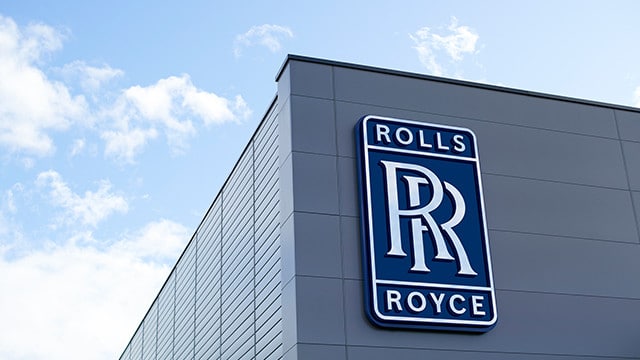Key points:
- The possible growth story at Rolls Royce is twofold
- The recovery of the jet engine business and hours flown
- The modular nuclear business for the long term
- Why Are RR, Rolls Royce Shares, Down 6% As Airlines Recover?
Rolls Royce (LON: RR) shares might be worth more than a bit of attention at present. It’s true that JP Morgan downgraded RR, but as ever we want to know, as traders, what happens next. With the Rolls Royce share price under a pound, is this the time to be piling in?
This decision depends upon two entirely different sets of calculations. The first is the main operating business, the jet engine one. It’s important to understand the revenue structure here. Yes, obviously selling jet engines to an airline is a nice thing to be able to do. Also, clearly, this business has been depressed these past couple of years. But that’s not really where the money comes from.
Jet engines work – a little at least, even if not entirely – on the King Gilette principle. Give away the razor in order to be able to sell a consistent future stream of razor blades. With Rolls Royce and jet engines, the engines are sold, yes, but the real revenue stream is the maintenance that comes for the following years. That’s usually charged on a flying hours basis.

Also Read: How To Buy Rolls Royce Shares
So, lockdown didn’t just slow the number of engines sold – it entirely crippled the maintenance business as jets were grounded. RR’s business is also concentrated toward the larger and longer distance end, exactly the sort of intercontinental part of the travel industry that really got entirely closed.
So, there’s our opinion on how that’s going to revive in this short to medium term to consider. Do we think this might go faster than the market in general thinks? If so we’ll value Rolls Royce shares more highly than the market.
The other issue is those small modular nuclear reactors. They definitely work, the engineering is done. The big question is whether anyone’s ever going to allow them to be built anywhere. That’s politics, and the conniption fits of the greens about anything nuclear. But, there’s also that Net Zero pressure and so who is going to win out?
Which brings us to recent comments from Paul Stein, chairman of the RR small modular reactors division. Which is that the reactors are likely to be approved in mid-2024. Now, of course, predictions, people talking their own book and all that. But the fascinating part of this is not the date, but the assumption that approval will come. For that is there – Stein is giving us a date for approval, he’s in no doubt about whether in this statement.
The bottleneck for that nuclear business is indeed approval. For the government has already started to modify planning law so that we don’t get interminable, year’s long, inquiries into each and every installation. Type approval will override much of those individual inquiries and planning processes.
Now, of course, that’s not proof that the nuclear business will succeed. But it does show that the political winds are behind it. Meaning that we might want to add this as our second valuation point.
Which leads to that trading decision. What value do we place on the travel recovery, what on the longer-term future of the nuclear business? Do we then think that Rolls Royce shares are worth more than the rest of the market does?




